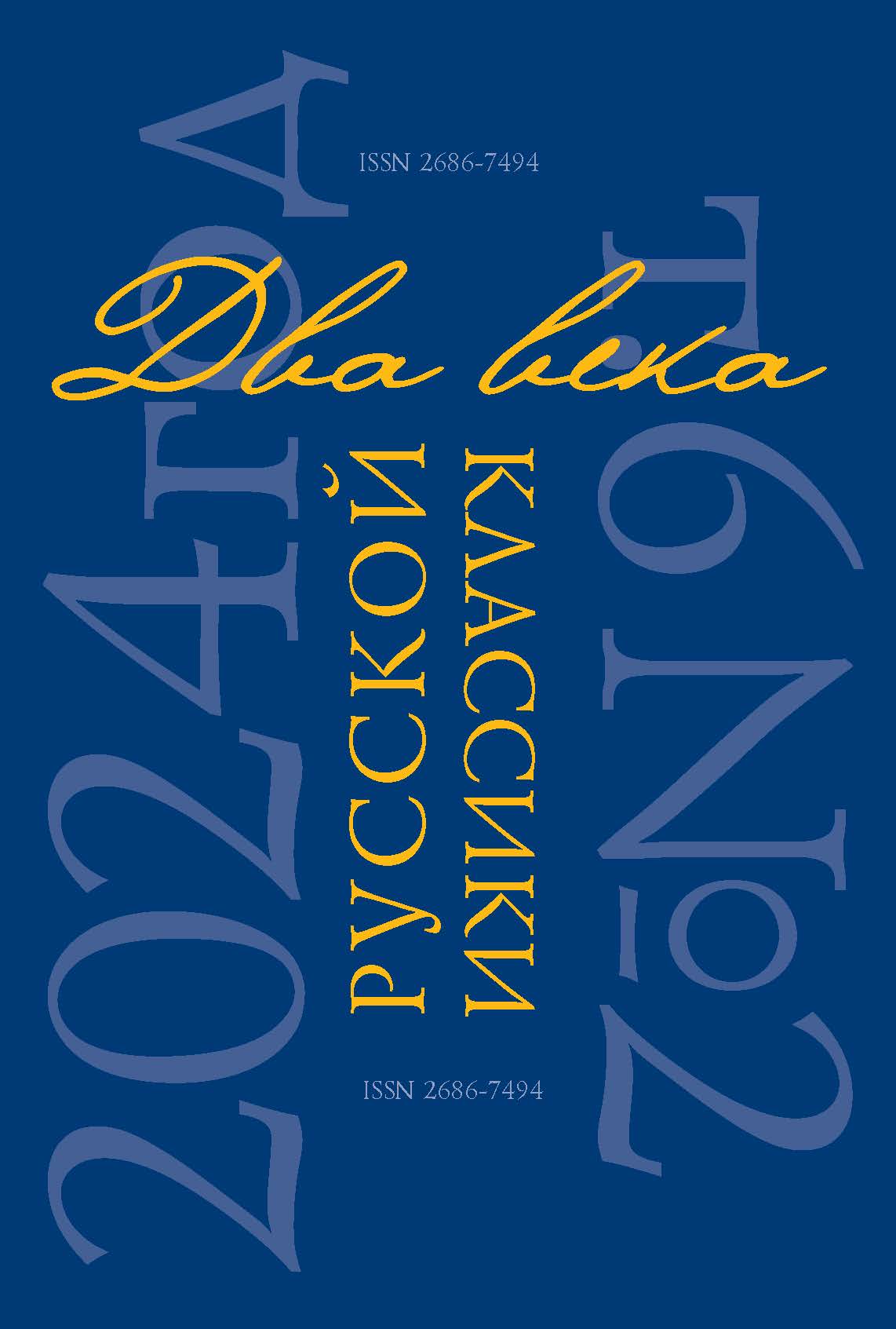Abstract:
The article is devoted to the youthful diary in letters of Ivan Vasilyevich Vuich (1813–1884). Thе diary is kept in the Manuscript Department of the Russian State Library. The author of the diary came from the province to St. Petersburg to enter the School of Cavalry Junkers and Ensigns of the Guard. He lived in the capital for a year, preparing to the examinations and attending theaters, concerts, exhibitions, etc. in his leisure time. In 1830 he entered the School and studied there for another year, and then went with his regiment on a Polish campaign. In total, he lived in St. Petersburg for two years (1829–1830), during which he kept his diary in the form of letters addressed to his relatives. This genre is intermediate between a diary and a letter; it differs from a diary by the presence of a clearly designated addressee to whom the text is oriented. In particular, Vuich in his notes seeks to introduce relatives to the entertaining phenomena of metropolitan life. Thus, Vuich’s “journal” represents a lot of details of the city’s daily life; this makes it a useful source for studying the cultural history of the first third of the 19th century and for commenting on fiction and epistolary texts of this period, including letters of N. V. Gogol.
References
Andronikov, I. L. Lermontov. Issledovaniia i nakhodki [Lermontov. Research and Finds]. Moscow, Khudozhedtvennaia literatura Publ., 1977. 646 p. (In Russ.)
Egorov, O. Russkii literaturnyi dnevnik XIX veka: Istoriia i teoriia zhanra [Russian Literary Diary of the 19th Century: History and Theory of the Genre]. Moscow, Flinta, Nauka Publ., 2003. 279 p. (In Russ.)
Zalizniak, A. A. “Dnevnik: k opredeleniiu zhanra” [“Diary: towards the Definition of the Genre”]. Novoe literaturnoe obozrenie, no. 6 (106), 2010, pp. 162–180. (In Russ.)
Krasovskaia, V. M. Russkii baletnyi teatr ot vozniknoveniia do serediny XIX veka [Russian Ballet Theater from its Inception to the Middle of the 19th Century]. Leningrad, Moscow, Iskusstvo Publ., 1958. 309 p. (In Russ.)
Mikheev, M. Iu. Dnevnik kak ego-tekst (Rossiia, XIX–XX) [Diary as an Ego-text (Russia, 19–20)]. Moscow, Vodolei Publ., 2007. 262 p. (In Russ.)
Selezneva-Reder, I. A. Tsirk v Sankt-Peterburge pervoi poloviny XIX veka [Circus in St. Petersburg in the First Half of the 19th Century]. St. Petersburg, Publishing House of the St. Petersburg Theatre Arts Academy Publ., 2009. 222 p. (In Russ.)
Chereiskii, L. A. “Vuich” [“Vuich”]. Lermontovskaia entsiklopediia [Lermontov Encyclopedia]. Moscow, Sovetskaia Entsiklopediia Publ., 1981, p. 95. (In Russ.)









